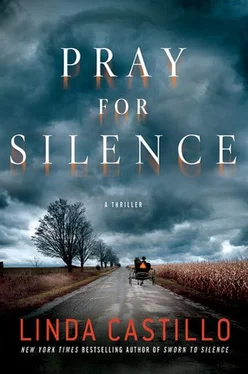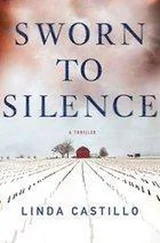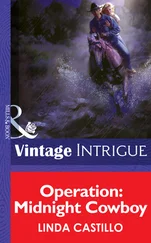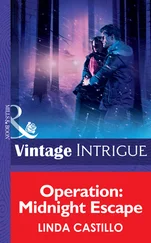“I’m going to make the call.” I sigh, knowing that as bad as this day has been, it’s probably going to get worse.
Pulling out my phone, I leave the tack room. Skid and Pickles are standing outside the door. Both still wear gloves and shoe covers. In an effort to preserve the scene and prevent the contamination of evidence, I’ve limited the number of people allowed in the barn and house to me, Glock, Skid, Pickles and Doc Coblentz. It will be up to us to deal with the dead.
“The doc is going to need some help getting those bodies down,” I say.
The men aren’t happy about the assignment; I recognize their green-around-the-gills expressions. But they’re far too professional to complain.
“I want you fully geared, including hair caps. I want the victims’ hands bagged.”
Without waiting for a response, I walk briskly down the aisle. My boots thud with a little too much force against the packed dirt floor. I’m shaking by the time I reach the door. Once outside, I can breathe again, and I stand there, gulping air. After a moment I’m feeling calmer, and I notice that the eastern horizon is awash with color. Beyond, the leaves of the maple tree rattle in a cool breeze. In the driveway, three ambulances wait to transport the dead. All of these things remind me that I’m still alive, and that even in the face of death, life prevails.
I dial John Tomasetti’s home number from memory. We’ve had an on-again, off-again relationship for about ten months now, but neither of us is very good at the relationship thing. Probably has to do with the amount of baggage we’re toting around. Of course that didn’t keep him from trying to get me into bed. It didn’t keep me from succumbing when I probably shouldn’t have.
To say we both have issues would be an understatement. Most of Tomasetti’s stem from the murders of his wife and two children two and a half years ago in a horrific act of revenge by a career criminal. The parallels to this case don’t elude me, and I realize that’s why I’ve been putting off the call. He’s a strong man, but even the strong have a breaking point.
But I need his help. His expertise. His instincts. His support. If I’ve learned anything in my years in law enforcement, it’s that the living come first. We can always deal with the dead in our nightmares.
He answers on the third ring with a curt utterance of his last name. He’s cranky upon waking. I wish I didn’t know that about him.
“It’s Kate.”
A beat of silence ensues, and I wonder if he thinks the call is personal. I can practically feel his walls going up. Maybe he’s afraid I’m lonely and drunk and calling him in the middle of the night to scream and rant, though I’ve never fallen to that particular low. “This is an official call,” I clarify.
“What’s up?”
“I’ve got a major crime scene here in Painters Mill. Seven vics. All DOA. No sign of the perpetrator. I need a CSU.”
I hear rustling on the other end of the line, and I can’t help but remember what he looks like in bed. Boxer shorts. Tousled hair. Beard stubble thick enough to chafe my skin . . .
“Tell me about the vics,” he says.
“Amish family. Five kids. Two teenaged girls were tortured.”
“Sexual assault?”
“I don’t know yet. Probably.”
“Damn.” More rustling. I can tell he’s getting dressed. Stepping into creased trousers. Shrugging into a crisp shirt—an expensive one because John Tomasetti knows how to dress. He’ll take his tie with him and put it on at the office. Stop at Stauf’s for a cranberry muffin and double espresso. He likes his coffee strong.
“Do you know them?” he asks.
“No. They’re from Lancaster. Moved here about a year ago.”
“Premeditated?”
“Probably.”
“What about motive?”
“I don’t know. Looks . . . thought out. Killer spent some time with the two girls.” I relay details of the torture aspect of the case.
“You have a suspect?”
“No.”
The telephone line hisses, reminding me of the miles between us, both figuratively and literally.
“I’ll get a CSU out there pronto to give you guys a hand with the scene.” He pauses. “You want me to come down?”
I hesitate a moment too long. He knows what I’m thinking, and he snaps at me. “For God’s sake, Kate. I can handle it.”
“You don’t have to come for this one, John. There were kids. A baby . . .”
“Let me get it cleared,” he growls. “Give me a day or two to tie some things up.”
“Thanks,” I say. “See you then.”
CHAPTER 5
The closest neighbor to the Planks is a pig farm owned by William Zook, who is also Amish. It’s nearly nine A.M. when Glock and I pull into the driveway and park between the barn and house. About nine hours have passed since the Plank family was murdered, and I feel every tick of the clock like the jab of an ice pick. Having worked for two years as a detective in Columbus, I’m well aware that the first forty-eight hours are the most vital in terms of solving a crime. After that, the case goes cold and the chances of a good outcome decrease substantially. I don’t plan on letting that happen.
The farmhouse is plain with badly weathered siding. The barn is octagonal with dirty white paint and tin shingles that have been peeled up by the wind. A tall silo with a rusty dome juts into a low, cloudy sky. A hundred years ago the farm had probably been a showplace. This morning, everything looks as old and tired as I feel.
In the side yard a dozen or more work shirts and trousers hang from a clothesline, flapping like flags in the morning breeze. To my right, pampas grass with spires that shoot ten feet into the air sways to and fro. Beyond, cornstalks rattle in a well-tended garden, and I know the woman of the house fills her days with pulling weeds and canning vegetables.
We exit the Explorer and start toward the front door. The smell of manure is overpowering. Most Amish farms are neat and well managed. The muck is scooped up several times a week and dumped into a manure pit, where it composts and is later used for fertilizer. Evidently, Zook doesn’t exercise good manure management.
Next to me, Glock sighs. “I’ll take you up on the mentholated jelly offer, now.”
“Left it at the scene.”
“Figures.”
Having just left the Plank farmhouse, I can think of more disturbing smells than pig shit, but I don’t comment.
We pass a small ramshackle barn surrounded by a rail fence and an ocean of oozing muck. Dozens of pink pig snouts poke out from between the rails, and I know they’re watching us, hoping for a snack.
At the back door, I knock and concentrate on the trace of mentholated jelly that remains beneath my nose. The door opens to reveal a plump Amish woman wearing a brown dress, a white apron and traditional kapp . We stare at each other for several seconds before I recognize her. Twenty years ago, Alma Gerig and I went to school together. She’s several years older than me, but our Amish school was so small, the older and younger children shared the same room.
She’s gained thirty pounds since I last saw her. Her hair is more gray than red. It makes me wonder what my own life might have been like had I remained Amish. Though I see mistrust in her eyes, she offers a genuine smile. “Katie. Guder mariye. ” Good morning.
“Hello, Alma.” Giving her a passable smile, I flash my badge.
Her smile falters. “Was der schinner is letz?” What’s wrong?
“I need to ask you and your husband some questions about something that occurred last night.”
Stepping back, she opens the door wider. She’s nervous now; I see it in the way her eyes flick away from mine. I don’t believe it has anything to do with me personally or the murders. Mistrust between the Amish and the English police has been a problem in this town for as long as I can remember. My being formerly Amish has helped dispel some of the friction, but it hasn’t eradicated it.
Читать дальше












